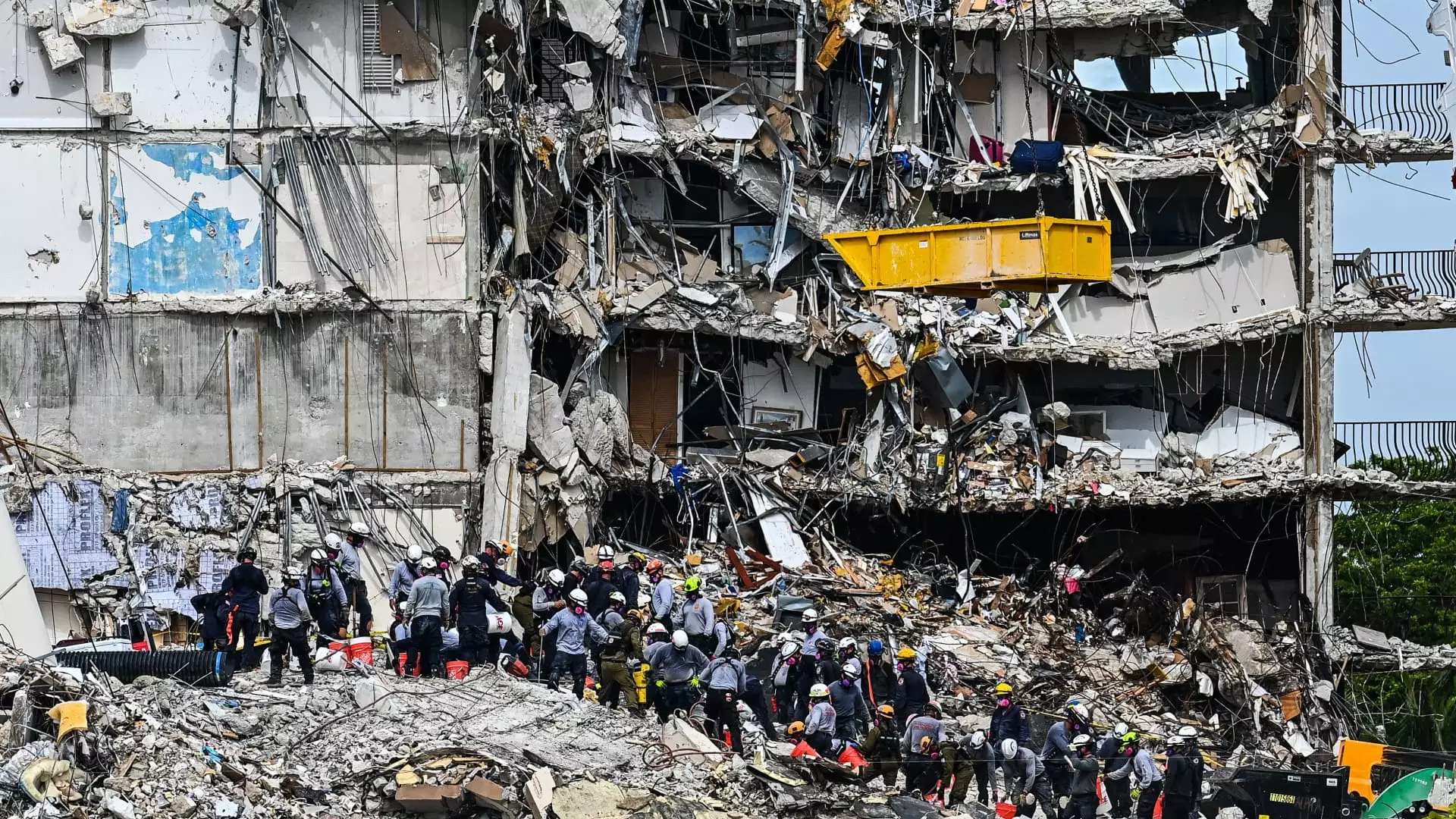The catastrophic collapse of the Champlain Towers South in Surfside, Florida, during the summer of 2021 shook not only the local community but also raised alarming questions regarding the structural integrity and safety protocols of older condominium buildings across the state. In the wake of this disaster, lawmakers took decisive action by implementing new regulations that necessitate rigorous inspections and financial planning for condominiums aged 30 years or older. These measures were born from a desperate need to prevent further tragedies, yet they have inadvertently propelled many condominium owners into a daunting financial abyss, forcing them to confront unprecedented challenges.
The looming deadline for compliance with these inspections, repairs, and reserve fund requirements highlights a silent storm gathering momentum: for many owners, particularly retirees living on fixed incomes, the costs associated with these mandates can be staggering. With inspections already underway and bills trickling in, many residents find themselves grappling with special assessments that can reach as high as $200,000 per unit. This scenario is more than just a hefty financial burden; it represents a societal crisis where the stakes are high, and the emotional toll is immeasurable.
The real estate market in South Florida is now experiencing unprecedented fluctuations. Analysis by renowned local real estate consultant Peter Zalewski indicates that a staggering three-quarters of all available condo units are over three decades old and thus subject to the oppressive financial regulations. This reality becomes increasingly concerning when observing that during the typically thriving summer selling season, condo sales plummeted by 21.5% compared to the previous year, with average prices weakened by a decline of 2.4%. The number of active listings soared by 60%, signaling a distressed market grappling with over-supply amid dwindling demand.
Beyond mere statistics, these figures represent a changing tide that could fundamentally reshape Florida’s housing landscape. Many long-time owners are faced with critical decisions: do they invest in costly repairs or sell their units at a significant loss? The fear of becoming entrenched in a “zombie building” phenomenon, a term coined by Zalewski, evokes images of incomplete property maintenance, deteriorating structures, and a community left to fend for itself. As for associations, the reluctance to openly acknowledge the financial burdens looming on the horizon amplifies the anxiety tenants feel, as detailed reports on repair costs keep rolling in.
The impact of these financial obligations doesn’t exist in a vacuum. For retirees and older residents, who often find themselves on fixed incomes, the economic reality is stark. Some owners are attempting to find an escape route—selling their properties to avoid the impending financial storm, while others may choose to abandon their units altogether. The irony is apparent: many initially considered the purchase of a condo a stable investment, only to find their dreams dashed by unexpected assessments and repair fees.
In this climate of uncertainty, another option emerges for some property owners: seeking out investors willing to absorb the financial burden in exchange for redevelopment opportunities. These investors see potential where others see decline, positioning themselves strategically to capitalize on prime real estate locations. For instance, developments like the Bay Garden Manor condo are attracting attention from large investors interested in tearing down older structures to pave the way for luxury waterfront properties. This trend raises pressing ethical questions regarding gentrification, displacement, and the preservation of community identity.
In a bid to address the financial crisis plaguing condo associations, Florida Governor Ron DeSantis called for a special legislative session. However, legislative leaders opted to delay any new actions until the regular session in early 2025, citing the need for a more comprehensive understanding of the financial implications. This postponement may signify a lack of urgency in tackling a crisis that threatens the very fabric of many communities across the state.
The real estate agent Stefania Ancona underscores the diminishing buyer pool, emphasizing that sellers face a quintessential dilemma: foot the bill for rising assessments or drastically reduce their prices. Unfortunately, the reality for many is grim, as the potential for foreclosures and short sales looms on the horizon.
The unfolding condo crisis presents residents, investors, and lawmakers alike with a complex labyrinth of financial and ethical considerations. As South Florida grapples with this issue, it becomes increasingly crucial for all stakeholders to engage in collaborative discourse to forge a path forward. Balancing the interests of owners while ensuring the safety and integrity of housing infrastructure remains a daunting yet essential imperative for Florida’s future. Only through cohesive action, foresight, and an unwavering commitment to community safety can South Florida hope to emerge resilient from the shadows of the Surfside tragedy.

